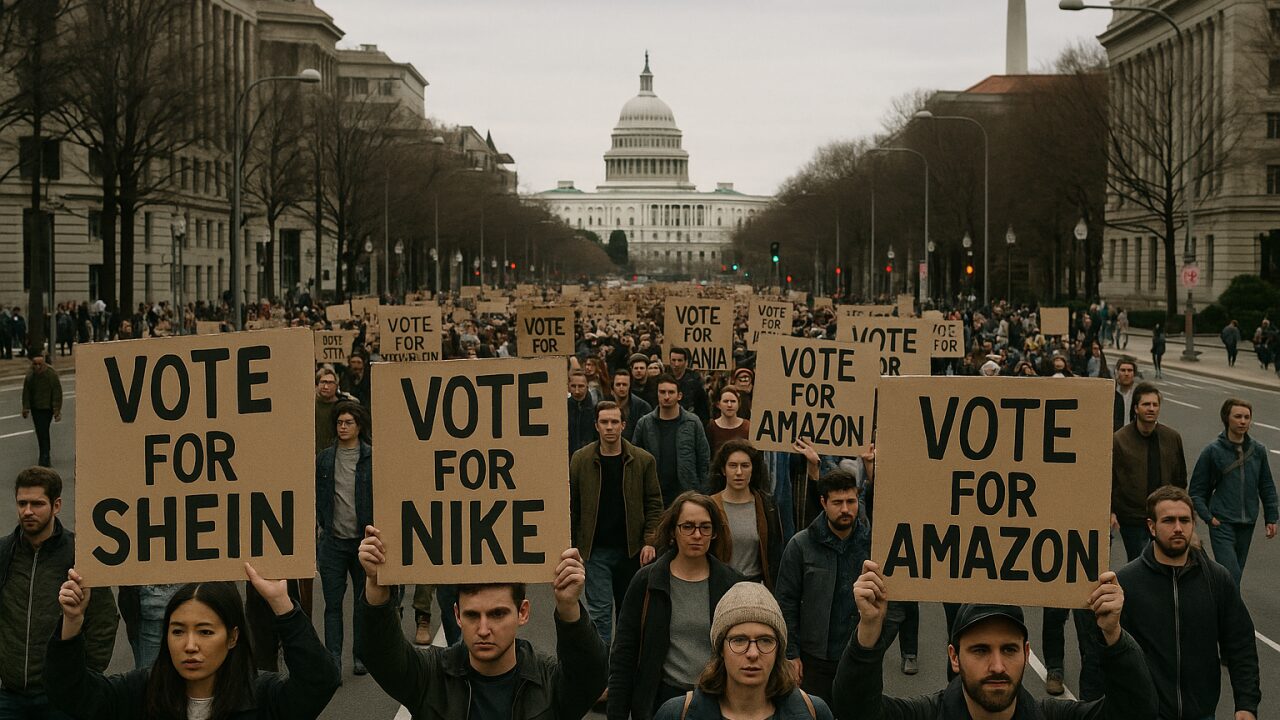Here’s the part nobody likes to admit: you don’t shop anymore. You vote.
Every purchase is a ballot. Every checkout line is a polling booth. Not the solemn kind you visit every four years, but one lit by harsh fluorescent bulbs, perfumed with reheated pizza from the food court, soundtracked by the same three Taylor Swift songs looping over the store speakers.
That bottle of water at the gas station? Not hydration. It’s a referendum on plastic, monopolies, and your own willingness to trade conscience for convenience. Those €39 sneakers? Not fashion. They’re a contract signed with invisible workers in invisible factories, sanctioned by an invisible boardroom that decided exploitation was “efficient.” Netflix on a Tuesday night? Not entertainment. It’s you volunteering for the algorithm’s editorial board, shaping culture one binge at a time.
Neutrality? Gone. Even indifference is political. “I don’t care, I just buy what’s cheap” has already been translated into a consumer profile and auctioned off in real time to the highest bidder.
The old institutions, the State, the Church, the Press, sound like broken accordions. Out of tune, out of breath, out of relevance. Into the silence stepped the brands. Not because they’re noble. Because they’re fast, shameless, endlessly entertaining.
Nike isn’t footwear. It’s a flag. Patagonia isn’t outerwear. It’s a climate referendum stitched in Gore-Tex. Amazon isn’t convenience. It’s a sovereign state with its own army of trucks, its own police made of algorithms, its own currency called Prime, and its own national holiday called Prime Day.
Apple? Not a phone company. A cathedral where the faithful tithe annually in exchange for glass-and-metal communion. Tesla? Not cars, but a religion where acceleration replaces salvation and the prophet tweets sermons at 2 a.m. Zara? A legislative machine disguised as fashion, updating its “laws” twice a week, faster than parliaments can pass a bill. Coca-Cola? Not a beverage, but a ministry of happiness, bottling nostalgia and sugar as if it were theology.
Do they deserve this power? Of course not. Did we hand it to them anyway? Absolutely. Because brands talk. They apologize. They confess in high-definition. They stumble and then rise again in redemption arcs we can’t resist.
Patagonia “donates” the company to the planet. Ben & Jerry’s releases foreign policy statements sandwiched between new flavors. Barilla flips a homophobic gaffe into a rainbow seminar on inclusion. McDonald’s prints sustainability promises on cardboard straws while quietly selling billions of burgers wrapped in plastic. Disney rewrites fairy tales to match social justice narratives, until a governor in Florida decides the Mouse has gone too far.
These aren’t campaigns. They’re rallies. They’re political speeches with better art direction, no debates, no opposition benches, and an attention span optimized for TikTok.
And you, you’re not a consumer anymore. You’re a constituent. Your cart is a ballot box. Your Visa card is your voter ID. Your reviews and retweets are counted with more precision than any democratic election you’ve ever seen.
And here’s the kicker. There is no exit. You can’t resign. You can’t unsubscribe. Even silence counts. Even refusal is measured, logged, and sold back to advertisers as “passive but monetizable.”
Meanwhile, politics itself is bending to the gravitational pull of brands. Trump’s recent summit with the CEOs of the most powerful tech companies didn’t look like politics. It looked like a brand workshop, with the President reduced to a moderator while the real decision-makers wore hoodies and sneakers and treated the White House like a co-working space.
But it’s not just Trump. Campaign rallies everywhere now look like product launches. Politicians pose like influencers, slogans are crafted like taglines, logos are designed for merch before policy is even written. Politics copies the aesthetics of brands, while brands assume the responsibilities of politics. The border between the two is thinner than the glass on your iPhone.
Think about it: Meta doesn’t just run social media. It governs speech. Twitter, sorry, X, doesn’t just host opinions. It decides which ones survive. Disney doesn’t just produce stories. It regulates imagination itself. These are functions once reserved for parliaments and schools and churches. And yet here we are, letting corporations run them with marketing teams instead of ministers.
So welcome. You’re already a member of Brands Inc. The only political party with eight billion members, a trillion-dollar war chest, and a flag that changes color depending on who’s holding the phone.
No exit. No abstention. No refunds. Just logos.
And here’s the cruelest part: democracy lets you vote every four years. Brands make you vote every single day. Sometimes dozens of times a day. Often without realizing it.





